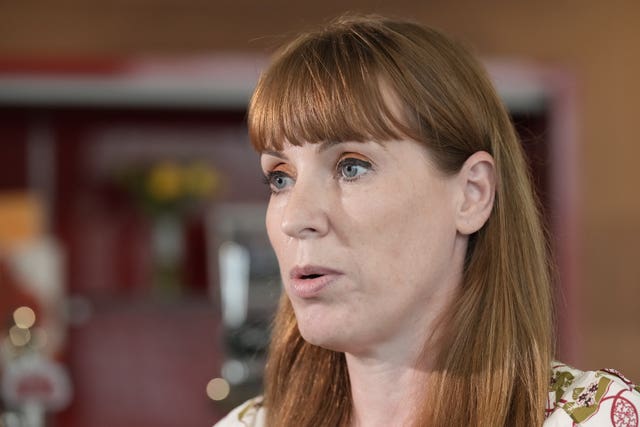
Dangerous cladding will be fixed on all high-rise buildings on Government schemes within the next five years, ministers are to pledge.
The Remediation Acceleration Plan will set out that by the end of 2029, all buildings over 18 metres tall – defined as high-rise – with unsafe cladding that are on a Government scheme will have been remediated.
Every building over 11 metres tall with unsafe cladding will have been remediated, have a date for completion or landlords will be liable for penalties by the same date.
The Deputy Prime Minister has described the plans as “decisive action”, but campaigners have labelled them as “extremely disappointing” proposals that will “only make a horribly complicated process worse”.

The Remediation Acceleration Plan, expected on Monday, will come alongside proposals drawn up with housing developers on how they can speed up work to fix buildings for which they are responsible.
Ms Rayner said the “pace of remediation has been far too slow for far too long”, more than seven years after the Grenfell Tower fire killed 72 people.
The inquiry into the 2017 fire found that victims, bereaved and survivors were “badly failed”.
The west London tower block was covered in combustible products because of the “systematic dishonesty” of firms that made and sold the cladding and insulation, inquiry chairman Sir Martin Moore-Bick said in September’s report.
End Our Cladding Scandal, a group representing leaseholders impacted by unsafe buildings, said that they are “still far from a comprehensive solution” on building safety.
The group said in a statement: “Labour’s Remediation Acceleration Plan is extremely disappointing. These proposals will only make a
horribly complicated process worse with further layers of bureaucracy.
“The Government may be patting itself on the back by announcing a target date for all high-rise buildings in government-funded schemes to have been remediated; however, the Building Safety Fund first opened for registrations in June 2020, so a target date of nine years from then is underwhelming.”
The group added: “We are still far from a comprehensive solution that will bring about the change innocent leaseholders and residents across the country need and deserve to see.
“There is still far too much uncertainty. Severe penalties will be meaningless without leaseholders and residents knowing for sure when homes will be made fully safe. This ‘plan’ will do little to change that.”
Deputy Prime Minister Angela Rayner said: “More than seven years on from the Grenfell tragedy, thousands of people have been left living in homes across this country with dangerous cladding.
“The pace of remediation has been far too slow for far too long. We are taking decisive action to right this wrong and make homes safe.
“Our Remediation Acceleration Plan will ensure those responsible for making buildings safe deliver the change residents need and deserve.”
Building safety minister Alex Norris said the announcement marks “a major step towards ensuring every building is made safe”.
He added: “Our Remediation Acceleration plan will fix buildings faster, identify all buildings with unsafe cladding and support vulnerable residents.
“This underscores our unwavering commitment to safeguarding residents and holding those responsible to account. We will not hesitate to actively pursue the owners of buildings who refuse to act.”


Why are you making commenting on The National only available to subscribers?
We know there are thousands of National readers who want to debate, argue and go back and forth in the comments section of our stories. We’ve got the most informed readers in Scotland, asking each other the big questions about the future of our country.
Unfortunately, though, these important debates are being spoiled by a vocal minority of trolls who aren’t really interested in the issues, try to derail the conversations, register under fake names, and post vile abuse.
So that’s why we’ve decided to make the ability to comment only available to our paying subscribers. That way, all the trolls who post abuse on our website will have to pay if they want to join the debate – and risk a permanent ban from the account that they subscribe with.
The conversation will go back to what it should be about – people who care passionately about the issues, but disagree constructively on what we should do about them. Let’s get that debate started!
Callum Baird, Editor of The National
Comments: Our rules
We want our comments to be a lively and valuable part of our community - a place where readers can debate and engage with the most important local issues. The ability to comment on our stories is a privilege, not a right, however, and that privilege may be withdrawn if it is abused or misused.
Please report any comments that break our rules.
Read the rules here